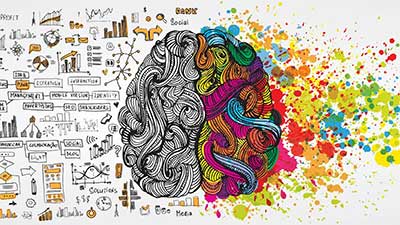Date : 31/07/2023
Relevance –
- GS Paper 1 – Society – Relation between art and society
- GS Paper 2 – Various Aspects of Liberty
Keywords – Neoliberal ideologies, Humanity, Liberty, Pete Seeger
Context -
In the rapidly changing world dominated by neoliberal ideologies, the study of humanities and liberal arts gains immense significance.
Songs as a powerful weapon –
Songs have a unique ability to transcend borders, reach even the most confined spaces, and ignite pivotal moments in history. Pete Seeger's words highlight the power of art and the human spirit, encapsulating the significance of the humanities and liberal arts. In an era overshadowed by neoliberalism, the study of these subjects remains essential for promoting diverse perspectives, fostering debate, and combating ignorance and animosity in a true democracy.
The Significance of Humanities in Neoliberalism
In the murky age of neoliberalism, the humanities face questions about their value and relevance. However, they are indispensable for cultivating life-enriching beliefs and ideas expressed by artists and philosophers. By engaging with the humanities, we confront the complexities of multiplicity, exile, and the inevitability of debate in a thriving democracy. Embracing the humanities empowers us to resist ignorance, animosity, and forgetting, paving the way for a more enlightened society.
Art as a Means of Emancipatory Politics
Art has a profound impact on shaping thought and action, serving as a powerful tool for political emancipation during times of significant transformation. Connecting with aesthetics enables individuals to voice the concerns of the masses, challenging the status quo and demanding radical social inquiry. The works of artists like Václav Havel, John Steinbeck, and Stan Swamy exemplify the impact of art in advocating for justice, freedom, and human rights.
Liberal Arts and Political Opposition
The novel "The Aesthetics of Resistance" by Peter Weiss delves into the symbiotic relationship between political opposition and the liberal arts. The intersection of political activism and artistic expression has the potential to challenge totalitarianism and transform every aspect of social existence. This fusion of art and politics becomes a defense against the constraints of monolithic identities, such as religious or ethnic affiliations, and fosters critical examination to create a more inclusive world.
The Ideals of Liberty and Humanism
Stephen Dedalus's ideology of liberty from nationality, language, and religion, as depicted in James Joyce's "A Portrait of the Artist as a Young Man," underpins the raison d'être of studying liberal arts. Encouraging a commitment to knowledge without bounds, this pursuit of freedom is at odds with the increasing coercive forces of neoliberalism that threaten the democratic fabric of universities. A return to philosophy is imperative to rectify the mistakes made in accepting neoliberal ideals and to uphold the values of liberalism and humanism.
Preserving the Spirit of Liberal Arts
It is crucial to reevaluate the position of liberal arts within universities, as they seem to have been marginalized in favor of state-centric programs and funding. Institutions like Visva Bharati and Sabarmati Ashram face the risk of losing their essence to the influence of right-wing forces. Drawing lessons from history, the essay reflects on Germany's experience under the Third Reich, emphasizing the necessity of liberal arts as safeguards against irrational thinking and fostering a vibrant cultural and political landscape.
The Power of Music and Art
Music, art, and literature have historically played pivotal roles in inspiring dissident movements and political change. The evocation of musicians like Bob Dylan, Dire Straits, Leonard Cohen, and Joan Baez, along with transformative events like the Prague Spring, highlight the profound impact of art in critiquing anti-humanistic practices of the state. Education in culture, philosophy, and art can counteract nationalism, technology's triviality, commercial vulgarity, and media-induced ignorance, allowing for a more advanced humanist society.
The Role of Academic Scholarship in Challenging Assumptions
Academic scholarship should challenge the influence of corporate media and state propaganda. A renewed focus on the humanities can equip students with the love for arts, fostering unity across societal divisions, and standing against absolutism. This approach encourages critical thinking, enabling the development of a new lexicon that challenges assumed knowledge and addresses contemporary political issues. Drawing inspiration from the struggles of the 1960s, the memories of that era will inspire future generations to continue the fight for social justice and freedom of inquiry.
Conclusion
In conclusion, the humanities and liberal arts remain indispensable in confronting the challenges of the neoliberal era. By embracing aesthetics, encouraging liberty and humanism, and preserving the essence of liberal arts, we can resist the oppressive forces of ignorance and intolerance. The power of art, music, and literature to inspire transformative change underscores the significance of nurturing academic scholarship and creating an enlightened society that values diverse perspectives and critical thinking. In cherishing the struggles of the past, we pave the way for a better future grounded in social justice, equality, and freedom of expression.
Probable Questions for UPSC Mains Exam:
- How can the study of humanities and liberal arts contribute to countering the rise of nationalism, consumerism, and media manipulation in a democratic society? Provide examples from historical events and contemporary movements to support your answer. (10 Marks, 150 Words)
- Discuss the significance of art, music, and literature in shaping political opposition and resisting totalitarianism. Refer to specific instances like the Prague Spring of 1968 to illustrate the transformative impact of artistic expressions in society. (15 Marks, 250 Words)
Source – The Hindu








